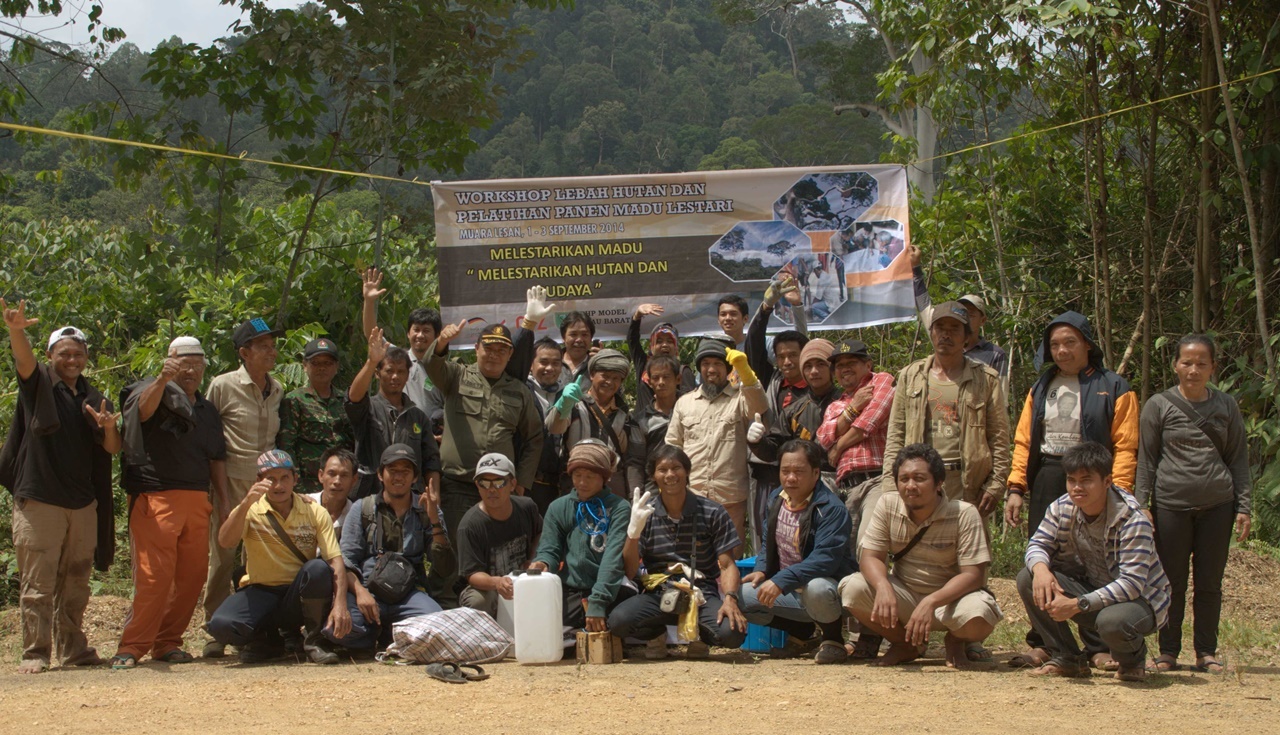
Wild honey is one of the high-potential non-timber forest products in the forest management unit (FMU) of West Berau. The wild honey is produced by the Apis dorsata bees that can mostly be found on Banggeris (Koompassia sp), Banyan (Ficus sp), and Meranti (Shorea sp) trees. Local communities live in the forest and the surroundings of the FMU West Berau and collect the wild honey to sell it as an additional household income at the local market.
Usually local communities harvest the wild honey during the night to avoid getting stung as bees cannot see in the dark. They use fire and smoke to drive the bees away from their nests. Post-harvest treatment consists of squashing, which however is considered to have a negative influence on the quality of the honey.
For the purpose of sustainable honey harvesting, the FMU of West Berau collaborates with FORCLIME and the local NGO Jaringan Madu Hutan Indonesia that focuses on sustainable wild honey harvesting. Together a training was held in Kampung Muara Lesan, sub-district of Kelay, Berau district from 1 to 4 September 2014. The training was attended by 40 people that come from seven wild honey producer villages adjacent to the FMU West Berau area. The trainers were a honey farmer group from Tesso Nilo, Riau, Sumatra. They were especially invited to educate the local people in Berau.
The participants of the training were very enthusiastic, especially when the honey collectors from Tesso Nilo, Mr. Japri and Mr. Ramli, demonstrated their skills in how to climb trees to harvest honey in a sustainable manner, even during the day. This skill was also introduced to the participants in order to be practiced in their respective villages. Further knowledge and skills the participants acquired during the training include the collection of wild honey nests in sustainable manner, introduction to other bee products besides honey, filtration methods, post-harvest processing, and packaging. Additionally, the participants also learned how to set up and manage a forest honey farmer group.
Following up on the training, the FMU West Berau is going to develop a comprehensive strategy on wild honey development within the forest management unit.
For more information, please contact:
Ali Mustofa, Adviser for Community Based Forest Management (CBFM)






